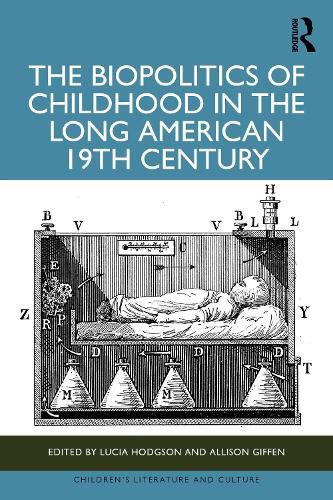Readings Newsletter
Become a Readings Member to make your shopping experience even easier.
Sign in or sign up for free!
You’re not far away from qualifying for FREE standard shipping within Australia
You’ve qualified for FREE standard shipping within Australia
The cart is loading…






This edited collection contends that the figure of the child is foundational to the workings of biopolitical power yet remains undertheorized. The study of nineteenth-century biopolitics offers a theoretical framework that promises to increase our understanding of how modern democracies manage their subjects. Recent scholarship has invigorated interrogations into forms of state governance that operate at the level of population, a biological phenomenon defined as a group of individuals linked by racialized fictions of biological commonality. This collection seeks to recognize and position critical childhood studies as essential to these interrogations. The essays theorize the role of representations of children and childhood as tools of biopolitical governance in America in the long nineteenth century. They variously explore how the interrelated and overlapping qualities integral to our understandings of the child and childhood are readily deployed by biopolitical power. The collection is organized into three sections that illustrate how these qualities enable the sorting of human beings into populations targeted for reform, exploitation, and disposal.
$9.00 standard shipping within Australia
FREE standard shipping within Australia for orders over $100.00
Express & International shipping calculated at checkout
This edited collection contends that the figure of the child is foundational to the workings of biopolitical power yet remains undertheorized. The study of nineteenth-century biopolitics offers a theoretical framework that promises to increase our understanding of how modern democracies manage their subjects. Recent scholarship has invigorated interrogations into forms of state governance that operate at the level of population, a biological phenomenon defined as a group of individuals linked by racialized fictions of biological commonality. This collection seeks to recognize and position critical childhood studies as essential to these interrogations. The essays theorize the role of representations of children and childhood as tools of biopolitical governance in America in the long nineteenth century. They variously explore how the interrelated and overlapping qualities integral to our understandings of the child and childhood are readily deployed by biopolitical power. The collection is organized into three sections that illustrate how these qualities enable the sorting of human beings into populations targeted for reform, exploitation, and disposal.